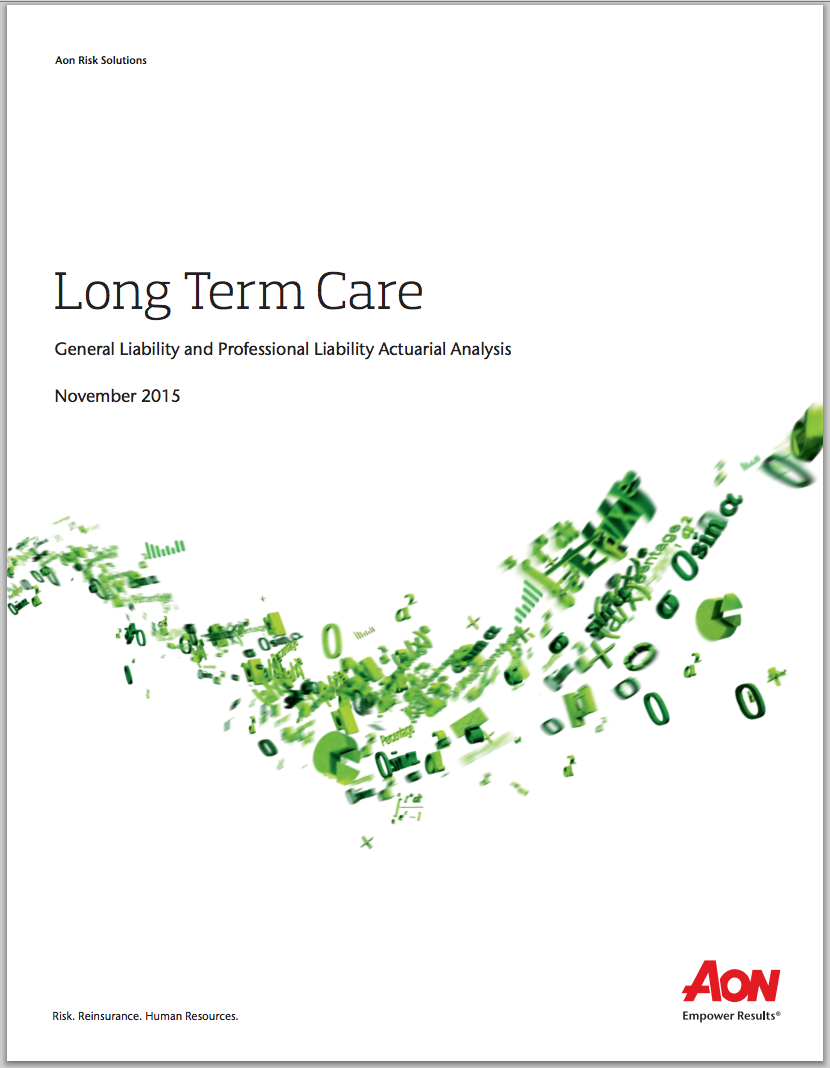
A new analysis of data on 18 states, released by the American Health Care Association and Aon Global Risk Consulting, projects that in 2016, the five most expensive states in which to operate a senior living business, based on the cost per exposure of settling, defending or litigating liability claims, will be:
- Kentucky
- West Virginia
- Florida
- Tennessee
- Illinois
The loss rates cited in the 13th published edition of the Aon/AHCA 2015 Long Term Care General Liability and Professional Liability Actuarial Analysis were calculated as the ratio of total dollars of losses to total exposures for a year. The report projects 2016 loss rates limited to $1 million per occurrence to be $9,820 in Kentucky, $6,820 in West Virginia, $6,810 in Florida, $3,450 in Tennessee and $3,210 in Illinois.
California, Georgia and New Jersey had the next highest liability costs of the 18 states profiled. Countrywide, the projected loss rate for 2016 is $2,150. Texas, at $410, and Massachusetts and Minnesota, at $450 each, had the lowest projected loss rates for 2016 of the 18 states profiled.
The report also cites an increase in claims frequency in Florida, Georgia, Kentucky, Minnesota, Pennsylvania and Tennessee, due especially to advertising by plaintiffs’ attorneys.
Overall, the cost of liability continues to increase for the long-term care profession, according to the study. The national long-term care loss rate is expected to grow by 5% annually, with claim frequency driving the increase at a forecast 3% growth rate. Long-term care claim severity is increasing 2% annually.
Generally speaking, the trends cited in the report for national and state-specific increases in liability costs apply to all settings, a spokesperson for AHCA told McKnight’s Senior Living. Operators of independent and assisted living communities will find more value in looking at the percentage increases contained in the report rather than the cost per occupied bed figures, however, according to the organization. All beds in the study were adjusted to be the equivalent of skilled nursing care beds since assisted living beds generate fewer dollars of general liability and professional liability claim activity.
The study also examined the use of arbitration as an alternative to litigation and found that claims resolved under arbitration agreements have a 7% lower cost and are finalized three months earlier than claims resolved without arbitration.
Argentum (transitioning from being known as the Assisted Living Federation of America), the American Seniors Housing Association, AHCA and LeadingAge were among the organizations filing comments by Oct. 14 with the Centers for Medicare and Medicaid Services about the arbitration restrictions contained in a proposed rule that would revise the requirements that long-term care facilities must meet to participate in the Medicare and Medicaid programs. Changes in the use of arbitration agreements in skilled nursing centers will affect rates and accessibility to assisted living providers, the organizations argued, in part.
“The report validates what we have been saying about arbitration,” Mark Parkinson, president and CEO of AHCA, said in a statement. “Arbitration is an important way to help protect the legal rights of patients and their families while providing a faster resolution of disputes.”



